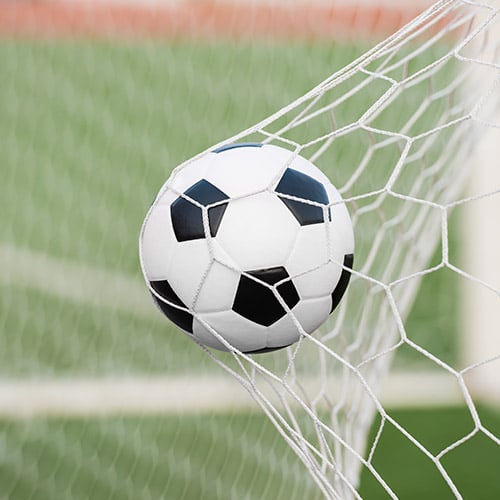Every athlete will suffer with confidence issues at one point in their career, whether that’s because they received some negative feedback, lost a competition or repeatedly failed at something.
But just because your confidence is low doesn’t mean it can’t be found again. Just like any skill, it’s something that can be worked on and developed – and when harnessed well, it can raise your performance to the next level.
Here at InnerDrive, we are often asked to help our athletes boost their confidence. So, we thought we would share what we know about confidence in sport and how to improve it…
First, a secret about confidence…
Although confidence is important, you can in fact perform well without it. It is of course helpful and leads to great results, but we don’t actually need confidence to still be able to perform well.
When athletes turn up to a competition not feeling as though they have the confidence to do well, they struggle to perform at their best. It leads to them overthinking and therefore not being able to complete the skills they usually do easily.
So, it’s not actually about the amount of confidence they have – but more about how they feel about their confidence levels. If they feel as though they need it to perform and they don’t have it, then this is going to have negative consequences. Athletes need to understand that confidence, although important, isn’t the only key to success.
In this sense, sometimes it’s more important to focus on what you can do to perform well instead of how confident you feel.
Why is confidence important in sport?
But that doesn’t mean athletes shouldn’t focus on improving their confidence levels.
Confidence is important because it helps athletes perform better. Research has found that high confidence facilitates performance through its positive effect on athletes’ thoughts, feelings, and behaviours. It is one of the most consistent findings within performance literature.
Along with improving performance, confidence can help you:
- Become more skilled at using cognitive resources necessary for sporting success;
- Influence your coping processes;
- Allow you to peak under pressure and cope successfully with adverse situations during competitions.
In comparison, low confidence can lead to the opposite of this. It can cause athletes to lose faith in their ability and consequently not be able to perform to their best. It has been associated with dissatisfaction as well as anxiety and depression.
Top tips for improving confidence in athletes…
A common misconception is that confidence is something people either do or don’t have. But this isn’t the case, and just like any skill, confidence can be learned and developed through focus and effort.
Here are our top tips for improving confidence using their past, present and future…
Using the past
Ensure athletes use the past to remind themselves of previous success and of the preparation they have put in. One way to do this is to aim for a successful warm-up and early-game form. This has been associated with increased confidence during clutch performances.
Coaches should therefore consider using warm-up drills that the athlete will likely be successful at, and focus on highlighting previous successes prior to performance.
The present
Using the present, encourage athletes to talk to themselves in a positive, helpful and energised way. The research suggests athletes should use phrases that are positive and approach-focused (e.g., “I want to win”) rather than negative and avoidance-focused.
Another way to use the present is for athletes to seek out similar people who have achieved something they want to achieve. This is similar to reminding yourself of previous successes, but this is called vicarious experience. It gives athletes the opportunity to learn from others, as well as boosting their belief that success is attainable.
The future
Using the future allows athletes to use visualisation to picture themselves being successful. Recreating images of successful performances in one's mind has been reported as a source of confidence prior to clutch performances.
Also, knowing that setbacks today can help you develop skills needed for tomorrow. Don’t be afraid to make mistakes, it’s a natural part of the learning process. Use it as motivation to succeed, rather than collecting reasons why you can’t do it.
Some other quick tips to remind athletes of…
- Don’t compare yourself to others – the race is long, and ultimately only with yourself.
- Don’t worry about what other people think about you so much - we can’t control what other people say think or do.
- Lose fear of failure – the idea that we shouldn’t make mistakes is unhelpful. In reality, this is a natural part of the learning process.
- Athletes are their own worst critic – coaches can encourage them to use setbacks as motivation to succeed rather than collecting reasons why they can’t perform when it really matters most.
- Don’t sweat the small stuff – it’s understandable when you are living in that moment with all that pressure to blow things out of proportion, but focusing on the stuff that really matters, it can really help improve your confidence.
Final thoughts
Whilst confidence is certainly important and of course we want all of our athletes to be confident in their ability, it’s not the be all and end all of performance. Using this guide though should help you think about what confidence is and where it comes from to help as well as give you some practical strategies to use to perform better.






